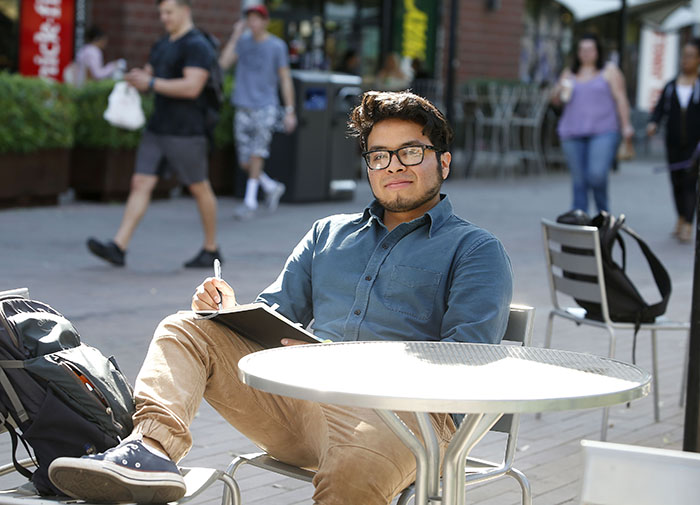![]()
GCU students have access to several steps that can lead to a good job:
WORK-INSPIRED CURRICULUM: Includes career focus within courses, Purpose Plan, Career Connections and exams for field of story/certification/licensure
NETWORKING: Includes job fairs, professional clubs, faculty career advisors, ACE Centers, workshops
REAL WORLD EXPERIENCE: Includes project-based classwork, research experience, relevant work experience, internships/practicums, capstones
EMPLOYER/GRAD SCHOOL: Includes employer profiles, industry partners, advisory boards, company tours, job board
Editor’s note: This story is reprinted from the April issue of GCU Magazine. To read the digital version of the magazine, click here.
By Rick Vacek
GCU Magazine
Not even the historic shutdown of global life could deter Grand Canyon University’s commitment to making sure its students find good jobs when they graduate – preferably before they graduate.
As students returned home for spring break and finished the semester in an online learning environment because of the COVID-19 outbreak, GCU faculty and staff came together again to take the 1,035 on-campus employer visits in 2019-20 and transform them into digital connections.
![]()
As soon as they get to GCU, students are introduced to the culture — which includes a strong focus on careers.
Even in the face of such a daunting upheaval, it was Job 1.
“GCU is set up, with our online platforms, to continue the dialogue without having to do the face-to-face,” said Colangelo College of Business instructor Mark Jacobson, among the most active faculty members in connecting students to employers.
“We’re going to have all kinds of virtual meetings. We’re going to have them talk to recruiters online and through phone calls and conference calls and Skype and Zoom calls. We’re challenging ourselves to get creative to connect with these students and not lose what we’ve gained.”
As if students needed another example of GCU’s commitment to turning degrees into careers.
It is evident right from the start, when they see the forward-looking, employer-driven career focus of the curriculum. That’s step 1.
They are constantly confronted by on-campus networking opportunities – career fairs, clubs, advisors and more. Step 2.
Those opportunities are designed to lead to step 3 – relevant experience in research or in industry.
And it all is enveloped by the University’s liaisons with industry leaders through advisory boards and its ability to connect students to employer profiles, job boards and company tours. Step 4.
It’s all there for students. All they have to do is be willing to take the first step. This story will explain how it works and what some students have done to find their purpose – their hire purpose.
![]()
Job fairs are the No. 1 way to get face time with employers on campus.
UNITED FRONT: Sharing the same purpose
“Find your purpose” is much more than GCU’s often repeated slogan. It is central to everything the University does for its students – and just as central to understanding why it became even more intentional about this mission two years ago.
GCU already had plenty of job fairs, resume workshops, mock interviews and other tools to give students a spot at the front of the line in the job market. But University leaders concluded that it all needed to be coordinated under one initiative that maximizes efforts of faculty, counselors and career advisors.
“More of a united approach,” said Haley Fagerlie, Executive Director of Strategic Employer Initiatives and Internships (SEI). The changes were put into place in the fall of 2018 with SEI taking the lead coordination role, working in close harmony with the individual colleges. The highlights:
- The curriculum was enhanced or, in some cases, dramatically altered to make it even more job-focused.
- The First-Year Experience (see chart) was created. It’s designed to make sure freshmen get enough academic and career counseling assistance – from administrators, faculty, ACE advisors, Life Leaders and Learning Advocates (LEADs).
- The Academic & Career Excellence Center, an academic-assistance center that became a GCU staple soon after it opened in 2013, was expanded to 15 outlets across campus.
- The Career Connections platform was created, and each student’s Purpose Plan, part of the welcome-to-GCU UNV-103 class, was automated and built into the site.
- The Academic and Career Journey Lifecycle was created to further explain how this all works.
![]()
Dr. Hank Radda
The changes reflected the passion that GCU’s Provost, Dr. Hank Radda, has for what he calls “a comprehensive list of offering for students to customize their pathway to a career.”
He added: “It’s a very intentional process from freshman to senior to start to think about and develop yourself for the job you want to do. It’s an esprit de corps of the people here. There’s no faculty or counselor that’s not willing to go the extra mile to connect the student with an opportunity or experience that can move them ahead.”
Students are eager to help other students, too. Part of the LEADs’ concierge-like service is to help freshmen whenever they can – even if that means walking with them and striking up a conversation when the newcomer needs to find a building.
The give-and-take between SEI and the colleges, between ACE and students, and between colleges and students is just as service-oriented. Through the Career Connections platform, students have access to more than 6,000 employer contacts.
“We’re part of the colleges,” Fagerlie said. “We support them, help them understand and align to different things we understand from employers and industries. We’re also supporting their efforts and making sure their students are getting access to the differen opportunities that we have available – job postings, events, workshops, all these things.
“The students have a sense that there is connectedness.”
![]()
Marquis Scott
It is not unlike what has happened in the business and sports worlds, where data analytics are driving everything from personnel decisions to new initiatives to game management. But at GCU, the analytics are in the hands of the students as well as the faculty and staff.
“Part of it was about giving students access,” said Marquis Scott, Director of Employer Engagement and Internships. “It’s unified the campus. Everybody is connected to what’s going on, information is flowing freely and we’re finding ourselves collaborating across the University about more than just the career opportunities – we share best practices.”
It has made a difference for the individual colleges, too.
“It’s made it a lot easier,” said Dr. Sherman Elliott, Dean of the College of Humanities and Social Sciences (CHSS). “In the past, a lot of those relationships would have to be maintained by the college.
“My job as dean is to constantly look to the external world for connections to help our students, but I don’t have the bandwidth to nurture the relationship. That’s where I appreciate the whole concept – SEI does a really good job of nurturing and maintaining the relationship.”
But to make all this jell, the colleges – from the conference room to the classroom – had to be on board with it. And they are. It’s their job to care about whether students get a job.
Employers say that the biggest differentiator in GCU students is the hands-on experience they get. It starts in the curriculum.
![]()
Dr. Sherman Elliott
ACADEMICS: Lists of graduates’ jobs must make the grade
Every spring, GCU deans review their eligible graduates in their college and their pathway toward a career. The most important outcome is their attainment of graduate school or a job.
In essence, the colleges are not being graded just by how well they taught. If the students don’t have jobs, does it matter how good the teaching was? And that’s what sets GCU apart.
“When we hired faculty 10 years ago, it was based on research,” Elliott said. “Then it shifted to pedagogy – people who could teach. Now a third of the conversation when I interview faculty is about careers.
![]()
A big crowd turned out for the Meet the Agencies career fair last fall in the Colangelo College of Business Building courtyard.
“That’s something that really hasn’t happened in higher ed. That’s something that’s been done over in the career services office When you read the Chronicle of Higher Ed about universities that are expanding their budget to move more money into careers, that money is not directed to colleges and faculty. It’s directed to a siloed career services office.”
Not at GCU. Not even close. Talk to administrators, talk to faculty, and one topic keeps coming up: How can they better collaborate to connect students with potential employers? How can we help develop them into highly recruitable employees?
“It’s the passion to serve our students that our faculty and staff have,” Radda said, “which makes them willing to dive in, shepherd and advise students toward their ultimate career goal. That could mean connecting a student with a current senator, attending a conference, joining a key research project or serving the community in Habitat for Humanity. It’s all for their development.”
It’s people like Mark Jacobson.
“I’ve always felt,” he said, “that there needs to be a strong connection with industry, with companies. Going to college is all about launching your career. I maintained, as I came to GCU, this passion to connect companies to students.
“I mentor, I coach, I advise – whatever I can do to help students get going.”
That giving spirit is reciprocated, too. Kathy Britton, Program Chair for Behavioral Health and Counseling for CHSS, helped TaylorRae Schnepp get a job at Red Mountain Behavioral Health when she graduated. Schnepp and her supervisor then came to campus to speak with groups of students.
![]()
Dr. Mark Wooden
Dr. Mark Wooden, Dean of the College of Science, Engineering and Technology, was thrilled last spring when 90% of the first-time graduates in his burgeoning engineering program were hired before or within four months of graduating.
“We do a lot of career mentoring,” he said. “We don’t let students leave until we talk to them about where they are in their academic pathway and their career pathway. We want to make sure they have the support they need.”
The effort goes beyond jobs. It extends to preparation for further studies, such as medical school or law school.
One dean tells the story of a faculty member who went on medical leave. During that time, it is standard practice for the employee’s emails to be forwarded to the supervisor. Within the space of a few days, 10 of those emails were from students thanking the faculty member profusely for helping them reach their goals.
The dean found himself overcome with emotion as he kept coming across new ones.
“I’m getting moved over and over again,” he said.
Elliott’s college has been affected by the job focus as much as any. Three years ago, CHSS revamped its curriculum to create career-friendly degrees in tune with today’s world. Providing meaningful, relatable academic instruction has long been his passion. But now he’s seeing it in his faculty.
“I’m pretty giddy because, now, faculty are using career language with me instead of vice versa,” he said. “They’ll say, ‘Hey, I’ve got this great idea for getting kids jobs over at the corrections office,’ or ‘I have this great idea for students getting jobs in professional writing.’ Before, that was language that administrators used, not academics.”
Even the employers are on board. In fact, the shape of the curriculum often is molded by their recommendations. Next, we’ll show how.
![]()
A wall in the Colangelo College of Business Building demonstrates the vast number of companies that have hired GCU graduates — such as iHeart Media and President Linda Little, also a member of the CCOB advisory board.
EMPLOYERS: They’re part of the team
Dr. Randy Gibb, Dean of the Colangelo College of Business (CCOB), is sketching out a diagram of an example that epitomizes how GCU’s job commitment works. The more he sketches, the more excited he gets about how it draws from all four steps in the continuum – curriculum, networking, experience and industry involvement.
It is the summary of CCOB’s liaison with Charles Schwab (see diagram), and it’s right on the money in the finance curriculum.
“Because Schwab is on campus,” Gibb said, “they’re now the cool company that people want to work for.”
![]()
Dr. Randy Gibb
But to the employers, working with GCU – and hiring GCU students – is pretty cool, too. The number of on-site employer visits this academic year was up more than 30% (and would have climbed even more if not for the coronavirus). They serve on GCU’s 18 advisory boards, which include more than 400 members, because they want to help shape those students … and then hire them.
“Without exception, GCU students we have hired have come prepared to work, prepared to learn, prepared to contribute,” said Beau Lane, Executive Chairman of independent marketing agency LaneTerralever and a member of the CCOB advisory board. “We’ve never had a recruit from GCU who wasn’t a strong hire. They share our value system.”
Said Steven Sheets, a GCU graduate who is CEO of Southwest Behavioral and Health Services, “There’s an approach that I think GCU fosters of expecting more. We get students who are eager to learn, eager to serve and ready to impact the community.”
That’s the sort of thing you hear at every job fair. The recruiters – many of them GCU grads who were on the other side of the recruiting table a few years earlier – want to hire them full time, they want to hire them as interns. They just want to hire them.
![]()
Brian Mueller
“Every GCU intern that we have hired for the summer or during school has hit the ground running,” said Peter Hushek, President of Phoenix Heat Treating. “They are adding value after a very short time on the job.”
The goal, GCU President Brian Mueller said, is to add that value across all vocations and disciplines. For years, Christian universities focused on developing pastors and teachers, but the world is a different place now and Mueller wants GCU to move right along with it.
“What we want to tell kids is, they’re all being called into sacred vocations, and if they feel called to biology or chemistry or mechanical engineering, we want them to pursue that because we want there to be Christian influence in those very important marketplaces,” he said.
Conversely, the industry influence on the GCU curriculum also is important.
“Because we are who we are, we can pivot to what industry needs,” Gibb said. “That’s where the advisory boards flat-out tell us, ‘Hey, here’s what you guys are doing, but here’s what we’re seeing and here’s where things are moving. Let’s develop a program that can do that.’”
Like the Schwab model, it just flows. So now it’s time to hear from the most important people of all – the students. They’re the cleanup hitters in this lineup, and they’d like to give GCU some high-fives.
![]()
Dr. Joe Veres
STUDENTS: Grads firmly express their gratitude
The folks who put in all this effort for students never quite know what will resonate. One student, for example, made it a point to say thank you for teaching her how to give a proper handshake (an important skill before the social-distancing era).
As you read these vignettes, keep in mind those four steps and see where each student falls – but don’t expect any of them to have scaled all four.
“I do not expect anyone to be able to say, ‘I did every one of these things out of these four steps,’” Radda said. “That’s not real, and that’s not the goal. The goal is, ‘Here are the things we seed for people.’ We want to educate them about what’s possible.”
Dr. Joe Veres, Vice President for Student Success, said, “From the parents’ perspective, I want them to know that we’re intentional. This is a University-wide initiative. These steps, no matter who you speak to, they fit somewhere in here. You have the entire University that’s embedded into the culture.”
And while every story on the next two pages is different, you also will pick up on some patterns in their search for their purpose.
![]()
Elizabeth Kluever
ELIZABETH KLUEVER
Psychology
Hank Radda worked directly with Kluever as she worked her way toward a bachelor’s in psychology and a master’s in clinical psychology. Now she’s in her first year at Wisconsin School of Professional Psychology, working toward a Psy.D. degree in Clinical Psychology.
“I asked a lot about his career, how he became provost of the University,” she said. “We talked a lot about the difference between going for the Ph.D. and the Psy.D.
“He was very helpful in answering any questions I had about the degree and about the profession as a whole.”
He also wrote a letter of recommendation for her grad school application. Her takeaway from Radda’s input:
“He was very interested in what I was doing and how he could assist me in that endeavor – not just talking about his experiences but helping me plan for my own.”
![]()
Jordan Montgomery
JORDAN MONTGOMERY
Electrical Engineering
The first GCU student to be accepted into the Nuclear Propulsion Offic Candidate (NUPOC) Program wouldn’t have gotten the opportunity without the help of the GCU Honors College and Aysha Bell, GCU’s Strategic Employer Initiatives and Internships Program Manager.
When Montgomery was a sophomore, Bell sent her a list of engineering jobs. “I wouldn’t have found it without Aysha,” Montgomery said.
But there was other help: A former professor, Andrea Strock, conducted mock interviews. Honors College Associate Dean Breanna Naegeli helped her with her background check. Even when the opportunity called for Montgomery to miss five days of class, her teachers were quick to find an alternative method of completing her participation points.
Montgomery believes this could open new doors for future nuclear engineers from GCU. “I don’t think anyone really knew about my school,” she said, “but I think they do now.”
![]()
Ruquiayah Muhammad
RUQUIAYAH MUHAMMAD
Sociology
There can’t be a greater advocate for Career Connections than Muhammad, who calls herself “the type who likes to plan ahead.”
Not only did the website help her land a job while she was a junior; she has been working full time as a behavioral health technician for Arizona Youth and Family Services for one full year – and has been promised a promotion to case manager when she graduates in April.
It happened, she said, because Career Connections links students to jobs that match their degrees. Now she has turned into a mentor – a friend built up her profile on the website and got a job for this summer, and Muhammad wants more students to hear her message.
“It resonates more when it’s coming from a student,” she said.
![]()
Darby OLeary
DARBY O’LEARY
Sports Business
O’Leary is the classic example of what Dr. Mark Clifford, CCOB Assistant Dean and Director of Sports Business, constantly preaches – get as much on the- job experience as possible while at GCU.
Her resume includes two spring trainings with the Oakland Athletics, a summer as a mascot handler for a minor league baseball team and stints for Position Sports, the Miami Hoophall basketball tournament and the Colangelo Classic in Phoenix.
The result: She’s a premium service coordinator for the Arizona Cardinals, a tangible result of the relationship Clifford has built with the NFL team. And she’s thankful to him.
“He’s awesome,” she said. “He definitely helped me throughout the process.”
![]()
Andrew Wagenknecht
ANDREW WAGENKNECHT
Justice Studies
When Justice 212 instructor Kevin Walling said he was seeking volunteers for an internship with the Guardianship Review Program out of the Superior Court of Arizona in Maricopa County, Wagenknecht was all in.
The sophomore’s job: Visit wards and contact their guardians to make sure the current living situation is going well. It is not for the faint of heart. One of his visits was to an 85-year-old woman who has pulled a gun on people on numerous occasions, and yet he said, “It was a good experience.”
Wagenknecht has a ways to go before graduation and the search for a full-time job (he’s leaning toward becoming a police officer, for starters). But he already has seen what GCU does.
“They care about the students and they provide tons of opportunities,” he said. “If someone isn’t involved in those opportunities, it’s because they don’t want to be.”
![]()
Austin Byrom
AUSTIN BYROM
Pre-law
Kevin Walling and another CHSS mentor, Val Martinez, are two of the biggest reasons Byrom is working toward a law degree at Baylor University.
Martinez, Byrom said, “helped me learn how to write memos, mediate and arbitrate and prepared me to do well in law school.” Walling’s two-hour “So You Want To Go to Law School” seminar “was very helpful and convinced me that law school would work for me.”
Byrom also was a Resident Advisor and a Life Leader at GCU. “GCU definitely set me up to do well here,” he said.
![]()
Anthony Arevalo
ANTHONY AREVALO
Mechanical Engineering
The 2019 grad didn’t forget his capstone partner, Haydon Hinson, when a job opened at his company, International Polymer Engineering. His recommendation helped Hinson get the job.
“I felt like Haydon deserved a job more than I did,” Arevalo said.
But having another Lope in the house brought back good memories.
“The experience you get at GCU is very collaborative,” Arevalo said. “I miss working with other GCU students to get things done.” Career Connections also helped him get things done – and get a job. He was told the position was listed on the website, got an interview and was hired the next day.
![]()
Marisa Becker
MARISA BECKER
Hospitality
Becker had an important student worker job at GCU: She managed the social media platforms for GCU Hotel and Canyon 49 Grill. But it was something in her professors who inspired her the most.
“The passion and drive that all of my professors had in life gave me a lot of encouragement that I could choose one thing now and God could take you so many differen places,” she said. “A lot of my professors still worked on the side and truly had joy in everything they were doing and loved their job because of what it entailed and the people they got to work with.”
So when she graduated last year, Becker went off and did something she never expected to do. Instead of going into corporate event planning, which still is her eventual goal, she took a social media job at a nonprofit camp for disadvantaged children on the Hawaiian island of Kauai.
Her takeaway from GCU: “They support you a lot in pursuing what God is putting on your heart and being a self-starter.”
![]()
Monique Karraa
MONIQUE KARRAA
Business Administration
It’s not as if GCU just discovered the importance of turning degrees into jobs. Karraa, a 2014 graduate, is proof that the University has been at it for a long time.
“I didn’t go into school thinking sports could be a job,” she said. “They did that.”
Heeding the advice she was given, she worked a variety of sports jobs. Now she’s a group sales account executive for the Arizona Coyotes.
Her favorite GCU memory? That’s easy: She got to work with Jerry Colangelo, the business college’s namesake, when he came to campus to give a speech.
“Jerry Colangelo is still one of my favorite people that I can say I’ve met and talked to,” she said.
![]()
Johnna Landry
JOHNNA LANDRY
Elementary Education
Landry credited GCU for helping her get a full-time job at her childhood school, Sunburst Elementary in Phoenix, before she graduated.
She said instructors at GCU were personable and quick to reach out to her and give advice from their own experience as educators, and her stint as a resident advisor aided her leadership skills.
“Without that, I wouldn’t be ready,” she said. “The other thing was the use of technology. They walked you through cool things to do in class that I’ve used so much – for example, how to implement video but not too much, and new note-taking technology.”
![]()
Joseph Perez
JOSEPH PEREZ
Psychology
Perez had a job lined up before he graduated in April 2019. GCU psychology instructors helped guide him to a paid internship at Southwest Behavioral Health Crisis Recovery Unit in Phoenix, and the behavioral technician’s training kicked in.
“We meet with people in crisis, usually in a locked-down facility. We monitor behaviors of clients, who are a danger to themselves or are not medication compliant,” he said. “We make sure everything is OK on the unit.”
He was assured of a job after graduation and credits GCU’s preparation.
“In this field, you have to be ethical, and they fall in line with GCU’s ethics – just having a good grasp of knowing what is right and wrong,” Perez said. “It is something that GCU teaches greatly.”
![]()
Carly Smith
CARLY SMITH
Business Administration
The April 2019 grad was worried as she stood in line at a job fair. Commencement was only a month away, and she didn’t have a job.
Suddenly, a GCU employee who had heard her speak at a campus event got her out of that line, took her over to meet the representative from InnovaQuartz and told the recruiter, “One of our students … very impressive.”
The medical device manufacturer was looking for an accountant but indeed was so impressed, Smith still got the project coordinator job. She had invested heavily in steps 1 and 2 and had heeded Mark Jacobson’s advice to get as much experience as possible, and it paid off.
“Absolutely a God thing – all the glory to Him,” she said. “I had a job before I graduated, and GCU was absolutely central to that.”
Mike Kilen and Ashlee Larrison contributed to the student profiles.
Contact Rick Vacek at (602) 639-8203 or rick.vacek@gcu.edu.
****
Related content:
GCU Today: Virtual career fairs come in handy for students
GCU Today: Biggest hiring event of year attracts 633 students
GCU Today: Opportunities abound at Cactus League job fair
The post Onward, upward: GCU helps students step into jobs appeared first on GCU Today.

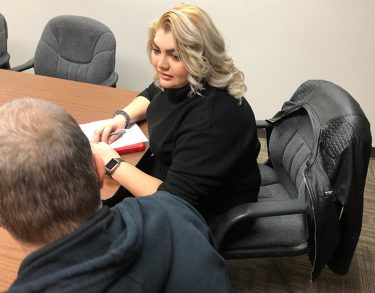
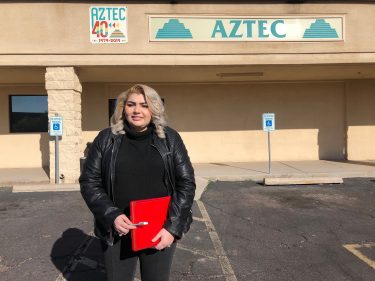







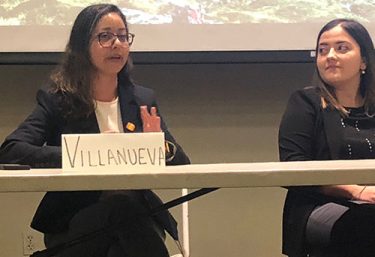


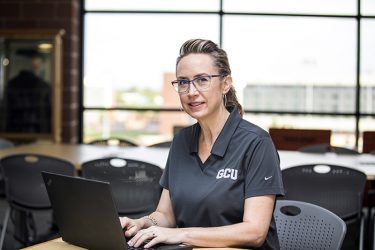
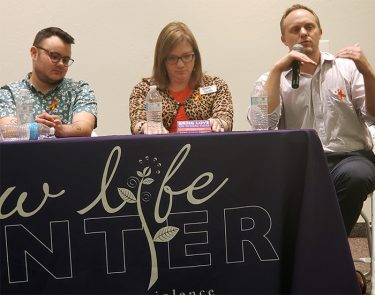



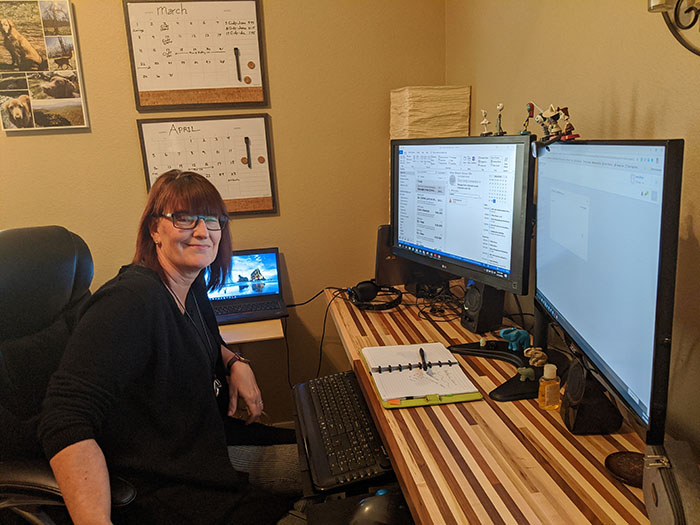








 She sent invitations, pulled up old Commencement ceremony footage that showed a processional and even arranged for a keynote speaker, Dr. Randhir Deo, faculty lead of GCU’s Environmental Science Program. He spoke to the graduates about being responsible with their degree and using their knowledge to benefit mankind.
She sent invitations, pulled up old Commencement ceremony footage that showed a processional and even arranged for a keynote speaker, Dr. Randhir Deo, faculty lead of GCU’s Environmental Science Program. He spoke to the graduates about being responsible with their degree and using their knowledge to benefit mankind. Share with a graduate!! 🥳
Share with a graduate!! 🥳 #Quarantine #StayHome #StaySafe #BestFriends #Classof2020 #CollegeGraduates #GCU #UCI #UCR #GCC #MVHS #VirtualGraduation #TagAGraduate
#Quarantine #StayHome #StaySafe #BestFriends #Classof2020 #CollegeGraduates #GCU #UCI #UCR #GCC #MVHS #VirtualGraduation #TagAGraduate
 LOPES OUT
LOPES OUT Who’s in the video: @long_live_dante @oneanonly_tayah @kirby.laing @mp_identity Song: Graduate by Jonathan McReynolds ft. the Hamiltones @jonmcreynolds
Who’s in the video: @long_live_dante @oneanonly_tayah @kirby.laing @mp_identity Song: Graduate by Jonathan McReynolds ft. the Hamiltones @jonmcreynolds


 Graduation season is here! We got to celebrate two special GCU graduates this weekend! Congratulations, Sarah & Delaney! Lopes up!
Graduation season is here! We got to celebrate two special GCU graduates this weekend! Congratulations, Sarah & Delaney! Lopes up!  #cardmyyardnwphx
#cardmyyardnwphx We’re so proud of you!
We’re so proud of you! 
 #gcu #gculopes #gcu2020 #graduation #imadeit #thankyou #blessed
#gcu #gculopes #gcu2020 #graduation #imadeit #thankyou #blessed































